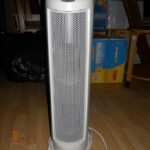“This house smells!”
Houses collect and hold odor in the heat of the summer (and in the dead of the winter). Most summers, in the cities and college towns, rental property was shown while the tenants were still there in hopes of selling before the end of the lease. This led to lots of smelly showings.
Covid-19 has made it less common to see occupied houses for sale. Sellers and tenants are almost always away during showings now. Sometimes they are still living there, but will leave for the weekend or for only a few hours.
When an occupied house has a smell, sometimes it is hard to figure out where it is coming from. This creates a challenge for us, as buyer’s agents. How do we find out if there is an occupant-created reason for the smell; how can we evaluate if the smell goes with the sellers or tenants?
Here’s an example. In July, there was a house that had a vague mildew-y smell. It was in a number of areas. The house also had air filters running on every floor and a dehumidifier in the basement. My clients and I looked — and sniffed — all over. There were no curtains or other fabric that smelled strongly, no wet areas, no kitchen garbage, no dirty laundry. But, there was an in-ground dog fence.
 How do I, as a buyer’s agent, check on whether the sellers have a big dog? I can’t say to the seller’s agent, “My clients think your clients’ house smells.” So I asked, “There’s a invisible dog fence, do the sellers currently have a dog? Is it a big dog?” I got confirmation that the sellers do, indeed, have a big dog. That confirmed the hypothesis, which was also confirmed by a home inspector (who did not find any leaking or mold that would explain the smell).
How do I, as a buyer’s agent, check on whether the sellers have a big dog? I can’t say to the seller’s agent, “My clients think your clients’ house smells.” So I asked, “There’s a invisible dog fence, do the sellers currently have a dog? Is it a big dog?” I got confirmation that the sellers do, indeed, have a big dog. That confirmed the hypothesis, which was also confirmed by a home inspector (who did not find any leaking or mold that would explain the smell).
Removing smells is good for you and your house
How can we keep our houses smell-free, and possibly more germ-free? Here are the easiest things to keep up on this summer:
Ventilate:
 Refresh the air in the house at least once a week. Open as many windows as possible and blow fresh air in. This is especially important for houses that are air conditioned and first floor rooms, where you can’t leave the windows all the way open.
Refresh the air in the house at least once a week. Open as many windows as possible and blow fresh air in. This is especially important for houses that are air conditioned and first floor rooms, where you can’t leave the windows all the way open.
The holders of smells:
- Fabric. That’s laundry. Oh.My,God! I cannot tell you how often I showed houses in the summer that smelled like sweat socks. Don’t let laundry linger in the summer. At least once in the summer, pay attention to couches, curtains, floor mats, dog and cat beds, too.
- Damp/wet areas.
- Check behind the faucets, under the sinks, under the dish drainer. Mold and mildew like little puddles.
- Basements with closed windows and no dehumidifier are a problem; either open the windows or use a dehumidifier – not both.
- The concrete floor of an unfinished basement is porous; some moisture transfers through it from the wet soil under your house.
- In finished basements, wood and cloth are porous and hold the dampness and invite the mold and mildew.
- Food waste. Garbage pails need to be hosed out, not just emptied, in the summer.
- Body waste. Cat boxes and any other pet place where their waste collects need to be cleaned with disinfectant and water. Then there’s your toilets; you can simply put some disinfectant in the water when you go to sleep and let it do the job overnight.
Indoor air pollution
We have things in our house that emit gases. Not just our gas stove, but our bookshelves (made of pressboard), paint, perfumes, and other manufactured items.
These chemicals collect in poorly ventilated spaces. Some people are sensitive to them, and get allergy symptoms like headache and fatigue. With all the time we are spending at home, during the Covid-19 crisis, members of your household may be affected by them.
Ventilation helps. So does air filtration. Both of those actions also contribute to control of transmission of Covid-19 among the people in your household.


Leave A Comment